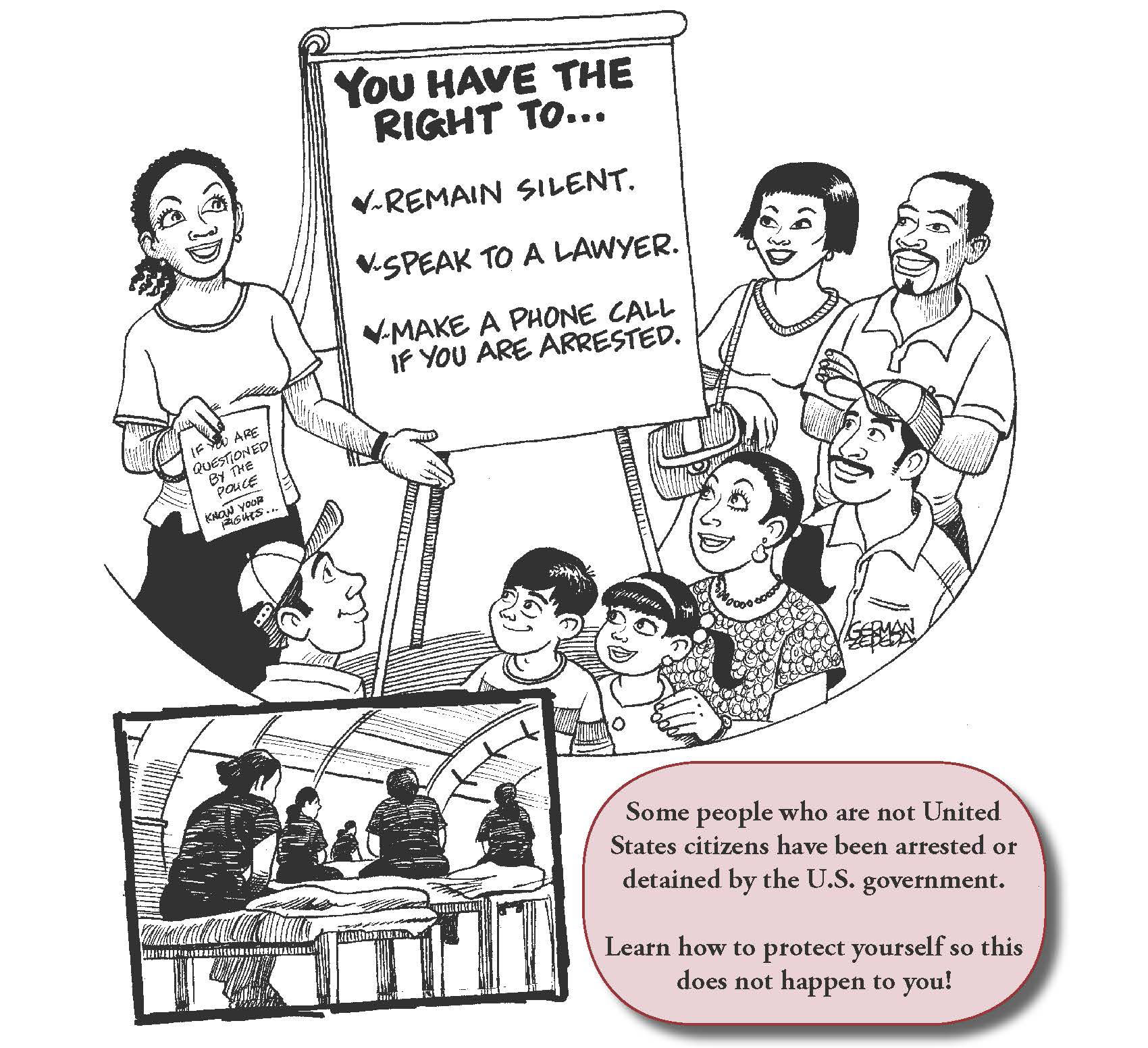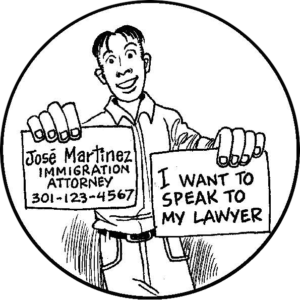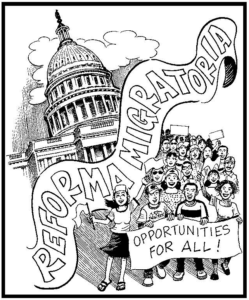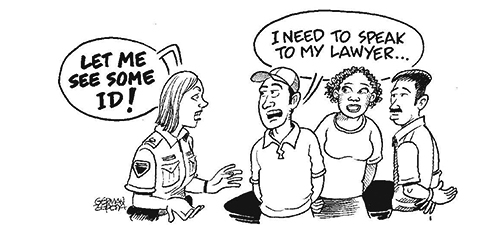[fusion_builder_container hundred_percent=”no” equal_height_columns=”no” menu_anchor=”” hide_on_mobile=”small-visibility,medium-visibility,large-visibility” class=”” id=”” background_color=”” background_image=”” background_position=”center center” background_repeat=”no-repeat” fade=”no” background_parallax=”none” parallax_speed=”0.3″ video_mp4=”” video_webm=”” video_ogv=”” video_url=”” video_aspect_ratio=”16:9″ video_loop=”yes” video_mute=”yes” overlay_color=”” video_preview_image=”” border_size=”” border_color=”” border_style=”solid” padding_top=”” padding_bottom=”” padding_left=”” padding_right=””][fusion_builder_row][fusion_builder_column type=”1_1″ layout=”1_1″ spacing=”” center_content=”no” link=”” target=”_self” min_height=”” hide_on_mobile=”small-visibility,medium-visibility,large-visibility” class=”” id=”” background_color=”” background_image=”” background_position=”left top” background_repeat=”no-repeat” hover_type=”none” border_size=”0″ border_color=”” border_style=”solid” border_position=”all” padding_top=”” padding_right=”” padding_bottom=”” padding_left=”” dimension_margin=”” animation_type=”” animation_direction=”left” animation_speed=”0.3″ animation_offset=”” last=”no”][fusion_text]
Learn how to protect you and your family during immigration raids
[/fusion_text][fusion_text] [/fusion_text][fusion_text]
[/fusion_text][fusion_text]
If you are questioned by the Police
[/fusion_text][fusion_text]You have the right to ask the officer if you are being arrested or detained.
- If the officer says, “NO, you are not being arrested or detained,” ask the officer if you may leave. When the officer says that you may leave, slowly and calmly walk away.
- If the officer says, “YES, you are being arrested or detained”…
You have the right to remain silent![/fusion_text][/fusion_builder_column][fusion_builder_column type=”1_1″ layout=”1_1″ spacing=”” center_content=”no” link=”” target=”_self” min_height=”” hide_on_mobile=”small-visibility,medium-visibility,large-visibility” class=”cont-rose-class” id=”” background_color=”#e9d3d6″ background_image=”” background_position=”left top” undefined=”” background_repeat=”no-repeat” hover_type=”none” border_size=”0″ border_color=”” border_style=”solid” border_position=”all” padding_top=”30px” padding_right=”30px” padding_bottom=”30px” padding_left=”30px” margin_top=”” margin_bottom=”” animation_type=”” animation_direction=”left” animation_speed=”0.3″ animation_offset=”” last=”no”][fusion_text]
If you are undocumented…
[/fusion_text][fusion_checklist icon=”fa-check fas” iconcolor=”#000000″ circle=”no” circlecolor=”” size=”18px” divider=”” divider_color=”” hide_on_mobile=”small-visibility,medium-visibility,large-visibility” class=”” id=””][fusion_li_item icon=””]Do not answer any questions or say only “I need to speak to my lawyer.” [/fusion_li_item][fusion_li_item icon=””]
[/fusion_li_item][fusion_li_item icon=””]
If you have a valid immigration status documents, show it. Always carry it with you.
[/fusion_li_item][fusion_li_item icon=””]
Do not say anything about where you were born or how you entered the United States.
[/fusion_li_item][fusion_li_item icon=””]
Do not carry papers from another country. (If you do, the government can use this information in a deportation proceeding).
[/fusion_li_item][fusion_li_item icon=””]
Show them the Know Your Rights Card attached.
[/fusion_li_item][/fusion_checklist][fusion_text]Above all, do not show any false documents and do not lie! [/fusion_text][/fusion_builder_column][fusion_builder_column type=”1_1″ layout=”1_1″ background_position=”left top” background_color=”” border_size=”” border_color=”” border_style=”solid” border_position=”all” spacing=”yes” background_image=”” background_repeat=”no-repeat” padding_top=”” padding_right=”” padding_bottom=”” padding_left=”” margin_top=”0px” margin_bottom=”0px” class=”” id=”” animation_type=”” animation_speed=”0.3″ animation_direction=”left” hide_on_mobile=”small-visibility,medium-visibility,large-visibility” center_content=”no” last=”no” min_height=”” hover_type=”none” link=””][fusion_text]
IMPORTANT!
In some states, it is a minor crime not to provide your name when asked by a police officer. While punishment for these crimes is minor, you still could be arrested for not providing your name. Remember that providing your name has risks, and that your name can be used to start a deportation process.[/fusion_text][fusion_text]
If immigration comes to your home …
[/fusion_text][fusion_text]
If Police or Immigration comes to your home:
You have the right to see a warrant if the Police Department, FBI, Immigration or other government official tries to enter your home. A warrant is a paper signed by a judge giving the officer to enter permission your home. The warrant will specify the areas that the official has the right to search.
Do not open the door. Ask the officer to slip the warrant underneath the door. If you open the door and allow the  official to come into the house, this may be considered giving him/her “consent” to enter. If s/he enters without a warrant, request the names and badge numbers of the officers and say that you did not “consent” to a search. Also, write down the names, addresses and phone numbers of anyone who witnessed the incident.
official to come into the house, this may be considered giving him/her “consent” to enter. If s/he enters without a warrant, request the names and badge numbers of the officers and say that you did not “consent” to a search. Also, write down the names, addresses and phone numbers of anyone who witnessed the incident.
If the officer has a warrant, observe whether the official searches any other areas that are not listed in the warrant. Get a receipt for any property  taken by the official.
taken by the official.
If Police or Immigration comes to your workplace:
Immigration must have a warrant signed by a judge or the employer’s permission to enter your workplace. If it is a public place, they do not need a warrant.
Stay calm. Do not run. This may be viewed as an admission that you have something to hide.
If Police or Immigration stops you on the street or in a public place:
If the police or an immigration officer stops you on the street and does not have a warrant, s/he may not arrest you unless s/he has evidence that you are a non-citizen. Remember you have the right to remain silent and to refuse a search. Do not say anything about your immigration status or where you were born. Also, do not carry with you any documents from your country of origin or false documents. If you have valid immigration status documents, show them.[/fusion_text][fusion_text]
If you are arrested your should…
1. Find out who has arrested you
Write down the name of the officers and their agency (Police Dept., FBI, Immigration, County Sheriff), along with their identification numbers and license plate numbers. You can find this information on their uniform or their cars.
 2.Don’t sign any documents before speaking with a lawyer
2.Don’t sign any documents before speaking with a lawyer
You always have the right to speak with a lawyer. Government officials may try to intimidate you or trick you into signing. Don’t let yourself be tricked! You may be signing away your right to a hearing before an immigration judge.
3. Contact your attorney or a family member
You have the right to make a telephone call after you are arrested. Memorize the telephone number of your attorney, family member, friend or union spokesperson, and contact him/her immediately.
4. Contact your consulate
 If you are a foreign national arrested in the U.S., you have the right to call your consulate or to have the deportation officer inform the consulate of your arrest. Ask the deportation officer to see a list of embassies and write down the phone number. The consul may assist you in finding a lawyer or offer to contact your family.
If you are a foreign national arrested in the U.S., you have the right to call your consulate or to have the deportation officer inform the consulate of your arrest. Ask the deportation officer to see a list of embassies and write down the phone number. The consul may assist you in finding a lawyer or offer to contact your family.
5. Ask for bond
Once you are in immigration custody, ask for bond
(even if immigration says you are not eligible). You have to show that you are not a flight risk or a danger to the community. Also, get a copy of the “Notice to Appear,” a document that contains the immigration charges against you.[/fusion_text][fusion_text]
If you are accused of a crime…
[/fusion_text][fusion_text]
Ask your attorney to help you get released from police custody
[/fusion_text][fusion_text]If you are arrested by local police, they must charge you with a crime in court within 48 hours (not counting weekends and holidays), or else release you. If police do file criminal charges, then you must still be released if (1) the charges are dropped, (2) you are granted and post bail, (3) you win your criminal case, or (4) you complete your sentence.
The police may contact Immigration to learn more about your immigration status. For example, if you have an outstanding deportation order, the police may inform Immigration that you are in police custody.
Immigration may then place a “detainer” on you, which gives Immigration an additional 48 hours to pick you up. If Immigration fails to pick you up within this time, the police must release you.
If the police don’t file criminal charges AND if immigration does not file a detainer, call an attorney or community organization to help you get released from police custody. They can write a demand letter to the jail or the sheriff.
 What should you do if you have been accussed of a crime?
What should you do if you have been accussed of a crime?
Consult with an immigration attorney to make sure that the crime will not affect your immigration status. If you want to apply for citizenship or a permanent residency card (green card), talk to your lawyer.
What should you do if you are facing deportation and you need an attorney?
Find an attorney who specializes in deportation defense. Always keep with you the complete name and contact information of your attorney. Request a written contract from your attorney before paying him/her. Make sure your attorney looks at the NTA (Notice to Appear) or your immigration papers before making promises. Don’t be tricked by people who are only after your money![/fusion_text][fusion_text]
Develop a safety plan
[/fusion_text][fusion_text]
1. Make a plan of action with your co-workers
[/fusion_text][fusion_checklist icon=”fa-check fas” iconcolor=”#000000″ circle=”no” circlecolor=”” size=”18px” divider=”” divider_color=”” hide_on_mobile=”small-visibility,medium-visibility,large-visibility” class=”” id=””][fusion_li_item icon=””]Talk with your co-workers to see if they are willing to make a collective decision that everyone – regardless of their immigration status – will remain silent and ask to speak with an attorney in the event of a workplace raid.[/fusion_li_item][fusion_li_item icon=””]
Tell co-workers not to run and to remain calm if there is a raid.
[/fusion_li_item][fusion_li_item icon=””]
If there is a union at your workplace, contact your union spokesperson to find out more about preparing for a raid.
[/fusion_li_item][/fusion_checklist][fusion_text]
2. Know what documents you should carry with you
[/fusion_text][fusion_checklist icon=”fa-check fas” iconcolor=”#000000″ circle=”no” circlecolor=”” size=”18px” divider=”” divider_color=”” hide_on_mobile=”small-visibility,medium-visibility,large-visibility” class=”” id=””][fusion_li_item icon=””] Carry a card with the contact information of your immigration attorney and/or union representative.[/fusion_li_item][fusion_li_item icon=””]
Carry a card with the contact information of your immigration attorney and/or union representative.[/fusion_li_item][fusion_li_item icon=””]
Carry a card, indicating that you wish to remain silent. A sample card is attached.
[/fusion_li_item][/fusion_checklist][fusion_text]
3. Make a plan to care for your family:
[/fusion_text][fusion_checklist icon=”fa-check fas” iconcolor=”#000000″ circle=”no” circlecolor=”” size=”18px” divider=”” divider_color=”” hide_on_mobile=”small-visibility,medium-visibility,large-visibility” class=”” id=””][fusion_li_item icon=””] If you have children or elderly relatives, make arrangements in advance for a family member or friend to care for them if you are detained. Have the telephone numbers of this relative or friend with you at all times and make sure other people know of these plans.[/fusion_li_item][fusion_li_item icon=””]
If you have children or elderly relatives, make arrangements in advance for a family member or friend to care for them if you are detained. Have the telephone numbers of this relative or friend with you at all times and make sure other people know of these plans.[/fusion_li_item][fusion_li_item icon=””]
Make sure you designate individuals you trust to make decisions for you if you are detained. They can help you withdraw money for deportation expenses or pay a mortgage. You can sign a power of attorney agreement to give this power to someone if you are arrested.
[/fusion_li_item][fusion_li_item icon=””]
Make sure your family has your immigration number (if you have one) and your full name and your date of birth. You will find this number on your work permission or your residency card. The number begins with an “A.”
[/fusion_li_item][fusion_li_item icon=””]
Make sure your family knows how to contact you if you are detained. Family members should contact the local office of Immigration and Customs Enforcement’s Detention and Removal Branch if they do not know where you are detained. Ask to speak with the supervisory deportation officer, and give the full name and A# of the detainee. If you do not have the contact information for your local field office, contact the Washington DC Headquarters at 202-305-2734.
[/fusion_li_item][/fusion_checklist][fusion_text]
4. Find an immigration attorney:
[/fusion_text][fusion_checklist icon=”fa-check fas” iconcolor=”#000000″ circle=”no” circlecolor=”” size=”18px” divider=”” divider_color=”” hide_on_mobile=”small-visibility,medium-visibility,large-visibility” class=”” id=””][fusion_li_item icon=””] Find an attorney who specializes in deportation defense who may be able to represent you if you are detained.
Find an attorney who specializes in deportation defense who may be able to represent you if you are detained.
Memorize the name and phone number of your immigration attorney.[/fusion_li_item][fusion_li_item icon=””]
Have the names and phone numbers of several good immigration attorneys posted near the telephone at home so family members can call an attorney if you are detained.
[/fusion_li_item][/fusion_checklist][fusion_text]
5. Have a copy of all immigration documents:
[/fusion_text][fusion_checklist icon=”fa-check fas” iconcolor=”#000000″ circle=”no” circlecolor=”” size=”18px” divider=”” divider_color=”” hide_on_mobile=”small-visibility,medium-visibility,large-visibility” class=”” id=””][fusion_li_item icon=””] Keep a copy of all immigration documents that have been filed with immigration with a friend or fam-ily member who you trust. Also, collect important papers, such as birth certificates, marriage certificates and passports. Place these documents in a secure, easy to find location so that your family can get access to these materials easily.[/fusion_li_item][fusion_li_item icon=””]
Keep a copy of all immigration documents that have been filed with immigration with a friend or fam-ily member who you trust. Also, collect important papers, such as birth certificates, marriage certificates and passports. Place these documents in a secure, easy to find location so that your family can get access to these materials easily.[/fusion_li_item][fusion_li_item icon=””]
Make a list of the names and contact information of any lawyer who has ever represented you.
[/fusion_li_item][/fusion_checklist][fusion_text]
Right to remain silent card:
Present the following card to immigration or the police if you are arrested to exercise your right to remain silent and to request an attorney.[/fusion_text][/fusion_builder_column][fusion_builder_column type=”1_4″ spacing=”” center_content=”no” link=”” target=”_self” min_height=”” hide_on_mobile=”large-visibility” class=”” id=”” background_color=”” background_image=”” background_position=”left top” undefined=”” background_repeat=”no-repeat” hover_type=”none” border_size=”0″ border_color=”” border_style=”solid” border_position=”all” padding_top=”” padding_right=”” padding_bottom=”” padding_left=”” margin_top=”” margin_bottom=”” animation_type=”” animation_direction=”left” animation_speed=”0.3″ animation_offset=”” last=”no”][/fusion_builder_column][fusion_builder_column type=”1_2″ spacing=”” center_content=”no” link=”” target=”_self” min_height=”” hide_on_mobile=”small-visibility,medium-visibility,large-visibility” class=”” id=”” background_color=”#e9ced3″ background_image=”” background_position=”left top” undefined=”” background_repeat=”no-repeat” hover_type=”none” border_size=”0″ border_color=”” border_style=”solid” border_position=”all” padding_top=”30px” padding_right=”30px” padding_bottom=”30px” padding_left=”30px” margin_top=”” margin_bottom=”” animation_type=”” animation_direction=”left” animation_speed=”0.3″ animation_offset=”” last=”no”][fusion_text]
Know your rights!
If you are detained by immigration or the police:[/fusion_text][fusion_checklist icon=”fa-check fas” iconcolor=”#000000″ circle=”no” circlecolor=”” size=”18px” divider=”” divider_color=”” hide_on_mobile=”small-visibility,medium-visibility,large-visibility” class=”” id=””][fusion_li_item icon=””]
Hand the card to the official, and remain silent.
[/fusion_li_item][fusion_li_item icon=””]
The card explains that you are exercising your right to refuse to answer any questions until you have consulted with a lawyer.
[/fusion_li_item][/fusion_checklist][fusion_separator style_type=”single|dashed” hide_on_mobile=”small-visibility,medium-visibility,large-visibility” class=”” id=”” sep_color=”#000000″ top_margin=”” bottom_margin=”” border_size=”” icon=”” icon_circle=”” icon_circle_color=”” width=”” alignment=”center” /][fusion_text]
To whom it may concern:
Please be informed that I am choosing to exercise my right to remain silent and the right to refuse to answer your questions. If I am detained, I request to contact an attorney immediately. I am also exercising my right to refuse to sign anything until I consult with my attorney.
Thank you.
[/fusion_text][/fusion_builder_column][fusion_builder_column type=”1_4″ spacing=”” center_content=”no” link=”” target=”_self” min_height=”” hide_on_mobile=”large-visibility” class=”” id=”” background_color=”” background_image=”” background_position=”left top” undefined=”” background_repeat=”no-repeat” hover_type=”none” border_size=”0″ border_color=”” border_style=”solid” border_position=”all” padding_top=”” padding_right=”” padding_bottom=”” padding_left=”” margin_top=”” margin_bottom=”” animation_type=”” animation_direction=”left” animation_speed=”0.3″ animation_offset=”” last=”no”][/fusion_builder_column][fusion_builder_column type=”1_1″ spacing=”” center_content=”no” link=”” target=”_self” min_height=”” hide_on_mobile=”small-visibility,medium-visibility,large-visibility” class=”” id=”” background_color=”” background_image=”” background_position=”left top” background_repeat=”no-repeat” hover_type=”none” border_size=”0″ border_color=”” border_style=”solid” border_position=”all” padding=”undefined” dimension_margin=”undefined” animation_type=”” animation_direction=”left” animation_speed=”0.3″ animation_offset=”” last=”no”][fusion_text]
 These materials where prepared through
These materials where prepared through
the collaboration of:
CASA of Maryland
Detention Watch Network
National Immigration Project of the National Lawyer’s Guild
Special thanks to Julie Dahlstrom of the National Immigration Project and Juan Carlos Ruiz of National Community Capacity Consultants for their work in developing the contents of these materials.
Layout and Popular Methodology
CASA of Maryland Education and Leadership Department
Illustrations
CASA of Maryland
Silver Spring, MD
Updated February 2008
[/fusion_text][/fusion_builder_column][/fusion_builder_row][/fusion_builder_container]



 [/fusion_text][fusion_text]
[/fusion_text][fusion_text] [/fusion_li_item][fusion_li_item icon=””]
[/fusion_li_item][fusion_li_item icon=””]
 official to come into the house, this may be considered giving him/her “consent” to enter. If s/he enters without a warrant, request the names and badge numbers of the officers and say that you did not “consent” to a search. Also, write down the names, addresses and phone numbers of anyone who witnessed the incident.
official to come into the house, this may be considered giving him/her “consent” to enter. If s/he enters without a warrant, request the names and badge numbers of the officers and say that you did not “consent” to a search. Also, write down the names, addresses and phone numbers of anyone who witnessed the incident. taken by the official.
taken by the official. 2.Don’t sign any documents before speaking with a lawyer
2.Don’t sign any documents before speaking with a lawyer If you are a foreign national arrested in the U.S., you have the right to call your consulate or to have the deportation officer inform the consulate of your arrest. Ask the deportation officer to see a list of embassies and write down the phone number. The consul may assist you in finding a lawyer or offer to contact your family.
If you are a foreign national arrested in the U.S., you have the right to call your consulate or to have the deportation officer inform the consulate of your arrest. Ask the deportation officer to see a list of embassies and write down the phone number. The consul may assist you in finding a lawyer or offer to contact your family. What should you do if you have been accussed of a crime?
What should you do if you have been accussed of a crime?  Carry a card with the contact information of your immigration attorney and/or union representative.[/fusion_li_item][fusion_li_item icon=””]
Carry a card with the contact information of your immigration attorney and/or union representative.[/fusion_li_item][fusion_li_item icon=””] If you have children or elderly relatives, make arrangements in advance for a family member or friend to care for them if you are detained. Have the telephone numbers of this relative or friend with you at all times and make sure other people know of these plans.[/fusion_li_item][fusion_li_item icon=””]
If you have children or elderly relatives, make arrangements in advance for a family member or friend to care for them if you are detained. Have the telephone numbers of this relative or friend with you at all times and make sure other people know of these plans.[/fusion_li_item][fusion_li_item icon=””] Find an attorney who specializes in deportation defense who may be able to represent you if you are detained.
Find an attorney who specializes in deportation defense who may be able to represent you if you are detained. Keep a copy of all immigration documents that have been filed with immigration with a friend or fam-ily member who you trust. Also, collect important papers, such as birth certificates, marriage certificates and passports. Place these documents in a secure, easy to find location so that your family can get access to these materials easily.[/fusion_li_item][fusion_li_item icon=””]
Keep a copy of all immigration documents that have been filed with immigration with a friend or fam-ily member who you trust. Also, collect important papers, such as birth certificates, marriage certificates and passports. Place these documents in a secure, easy to find location so that your family can get access to these materials easily.[/fusion_li_item][fusion_li_item icon=””] These materials where prepared through
These materials where prepared through